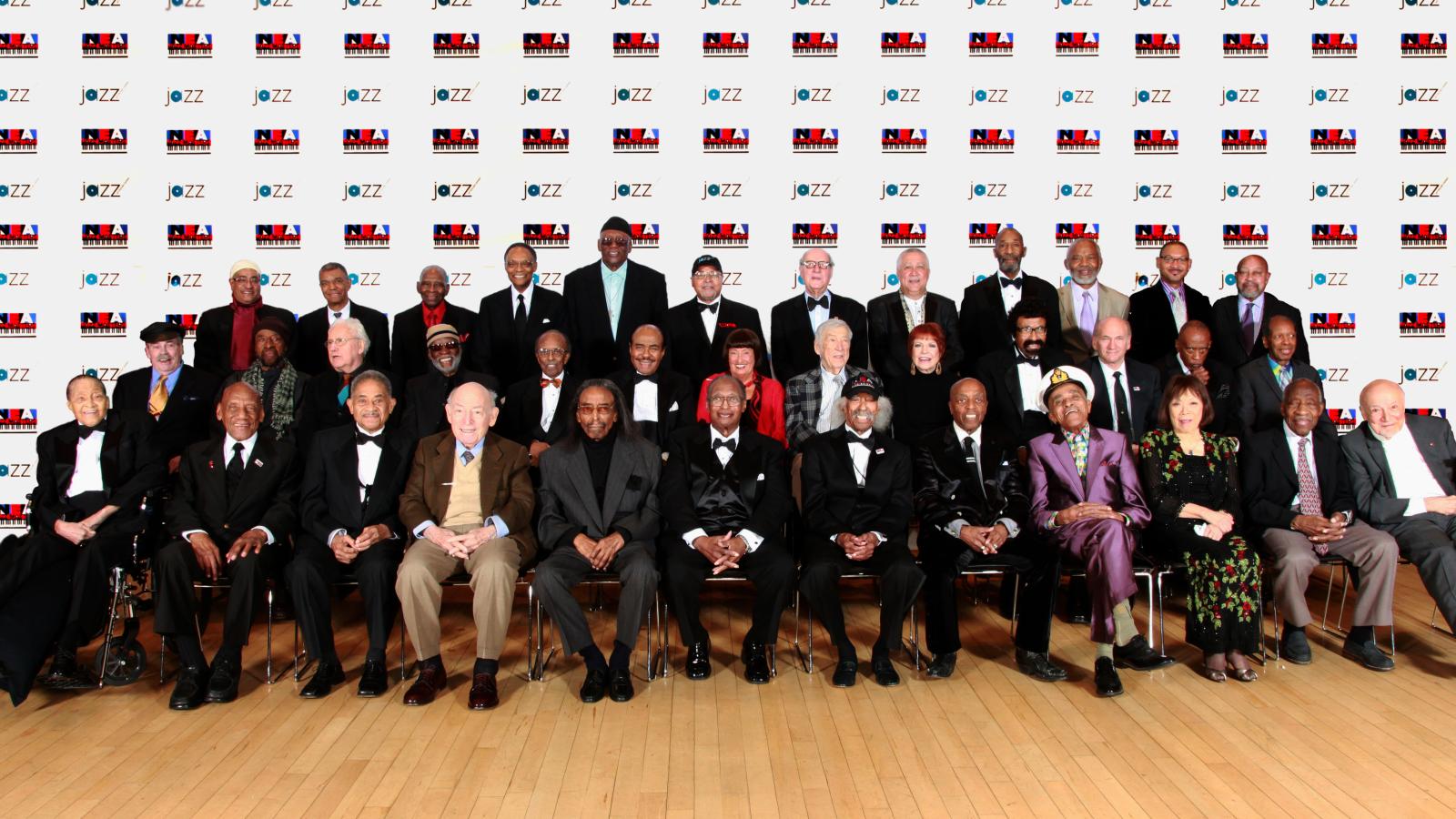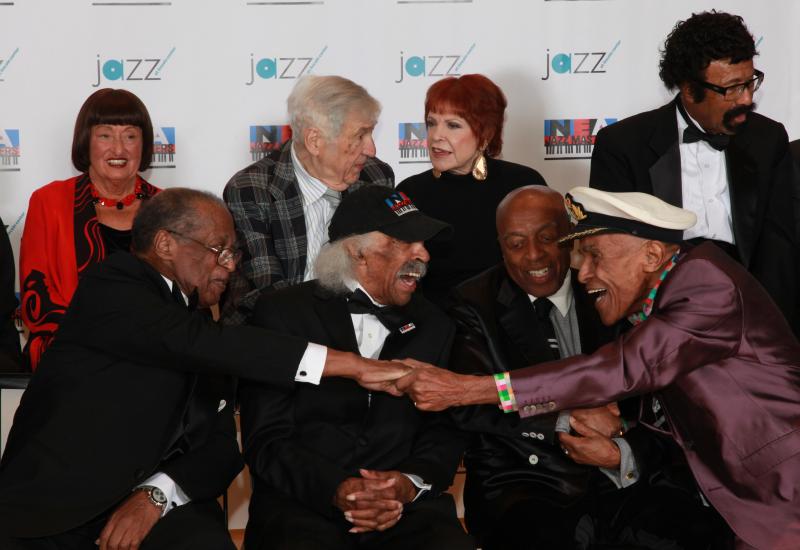A Brief History of the NEA Jazz Masters Fellowships

30th Anniversary NEA Jazz Masters Group Portrait
Front row (l to r): Jimmy Scott, Candido Camero, Frank Wess, George Wein, Chico Hamilton, Curtis Fuller, Gerald Wilson, Roy Haynes, Jon Hendricks, Toshiko Akiyoshi, Joe Wilder, George Avakian.
Middle row (l to r): Phil Woods, Yusef Lateef, Lee Konitz, Ahmad Jamal, Jimmy Heath, Benny Golson, Sheila Jordan, Gunther Schuller, Annie Ross, David Baker, David Liebman, Bobby Hutcherson, Ornette Coleman.
Back row (l to r): Jimmy Owens, Jack DeJohnette, Muhal Richard Abrams, Ramsey Lewis, Randy Weston, Jimmy Cobb, Dan Morgenstern, Paquito D’Rivera, Ron Carter, Hubert Laws, Delfeayo Marsalis, Kenny Barron.
Photo by Michael G. Stewart
In an effort to nationally recognize outstanding jazz musicians for their lifelong achievements and mastery of jazz, the National Endowment for the Arts in 1982 created the American Jazz Masters Fellowships (renamed the NEA Jazz Masters Fellowships in 2004). These awards are given to musicians who have reached an exceptionally high standard of achievement in this very specialized art form. In addition to the recognition, the Arts Endowment included a monetary award for each fellowship. The rigors of making a living in the jazz field are well documented. Jazz is an art form to which the free market has not been kind. Despite their unparalleled contributions to American art, many jazz greats worked for years just barely scraping by. The monetary award often has provided a much-needed infusion of income.
The three individuals who were chosen as the inaugural class certainly lived up to the criteria of artistic excellence and significance to the art form: Roy Eldridge, Dizzy Gillespie, and Sun Ra. The advisory panel in that first year included stellar jazz musicians themselves, such as some future NEA Jazz Masters: trumpeter Donald Byrd and saxophonists Frank Foster, Jackie McLean, and Archie Shepp. In addition, legendary Riverside record company co-owner and producer Orrin Keepnews (also to become an NEA Jazz Master) was on the panel.
From that auspicious beginning, the program has continued to grow and provide increased awareness of America’s rich jazz heritage. In 2004, a new award was created for those individuals who helped to advance the appreciation of jazz. In 2005, the award was designated the A.B. Spellman NEA Jazz Masters Award for Jazz Advocacy in honor of A.B. Spellman, a jazz writer, accomplished poet, innovative arts administrator, and former National Endowment for the Arts deputy chairman who has dedicated much of his life to bringing the joy and artistry of jazz to all Americans.
The Arts Endowment has also supported the Smithsonian Jazz Oral History Program to document the lives and careers of nearly 100 NEA Jazz Masters. In addition to transcriptions of the hours-long interviews, the website also includes audio clips that provide unique views on everything from their early years to their first introduction to music to the working life of a jazz musician in the artists’ voices.
The NEA has long supported jazz from its first grant in the field in 1969 (to jazz composer, musician, theoretician, and eventual NEA Jazz Master in 1990, George Russell) to special projects such as Dr. Billy Taylor’s Jazzmobile and the Jazz Sports program to today’s support of concert seasons, educational programs, and festivals, often featuring NEA Jazz Masters.
Each passing year brings increased international recognition of the National Endowment for the Arts Jazz Masters Fellowships as the nation’s highest honor for outstanding musicianship in the field of jazz. The award offers a solid platform for raising worldwide awareness of America’s rich jazz heritage by not only honoring those who have dedicated their lives to the music, but also by leading the way in efforts encouraging the preservation and nourishment of jazz as an important musical form for generations to come.

NEA Jazz Masters getting ready for the 30th anniversary group portrait in 2012. Photo by Michael G. Stewart

